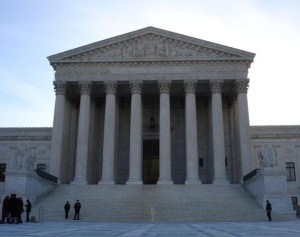January 27, 2017
 A federal court in the Central District of California has denied a motion filed by the manufacturers and marketers of the dietary supplement, 5 Hour Energy, which would have dismissed a putative nationwide deceptive practices class action lawsuit. The lawsuit, focusing on alleged false misrepresentations concerning the efficacy of the 5 Hour Energy product, is a consolidated litigation of similar lawsuits filed in federal courts throughout the country.
A federal court in the Central District of California has denied a motion filed by the manufacturers and marketers of the dietary supplement, 5 Hour Energy, which would have dismissed a putative nationwide deceptive practices class action lawsuit. The lawsuit, focusing on alleged false misrepresentations concerning the efficacy of the 5 Hour Energy product, is a consolidated litigation of similar lawsuits filed in federal courts throughout the country.
What is the nature of the claims against 5 Hour Energy?
The Plaintiffs allege that the manufacturers and advertisers of 5 Hour Energy made a number of misrepresentations in the marketing and sale of the product – namely, on-label representations that appear on the packaging, and off-label representations that do not appear on the packaging.
- Examples of such on-label representation allegations include promises appearing on the packaging that purport that the product provides “five hours of energy,” “hours of energy,” and “no crash”;
- The Plaintiff allege that these are misleading because the product provides only a few minutes of energy, at most, and results in a crash at the end of the five hour period.
- Off-label representations consist of statements made in 5 Hour Energy television commercials, such as a purported emphasis on the “beneficial ingredients” in the product including, “a powerful blend of B vitamins for energy,” etc.;
- The Plaintiffs allege that these claims are misleading because any vitamins contained in the product have no effect and any altered feeling that a consumer may experience after consuming the product is actually the result of its constituent caffeine levels.
The federal judge ruled that sufficient questions of fact exist regarding the truth of the 5 Hour Energy-related efficacy representations that only a jury could ultimately decide. Accordingly, the motion to dismiss the case was denied, allowing the putative nationwide class action to proceed.
Protect Against A Deceptive Practices Lawsuit
As we have previously blogged, class action plaintiffs, in addition to federal authorities and state attorneys general, have been aggressively suing/investigating companies for deceptive advertising practices. This case reinforces the notion that businesses should be vigilant in gathering verifiable, scientific evidence to substantiate all product efficacy claims. Accordingly, those businesses operating in the dietary supplement space would be wise to remain compliant with applicable laws governing consumer advertising, including working closely with experienced marketing counsel before the launch of any campaign.
If you are interested in learning more about this topic or need to review your marketing practices and procedures, please e-mail us at info@kleinmoynihan.com, or call us at (212) 246-0900.
The material contained herein is provided for information purposes only and is not legal advice, nor is it a substitute for obtaining legal advice from an attorney. Each situation is unique, and you should not act or rely on any information contained herein without seeking the advice of an experienced attorney.
Attorney Advertising
FTC Wins Health Benefit-Related Deceptive Advertising Lawsuit
FTC, NY AG Bring Deceptive Advertising Lawsuit Against Dietary Supplement Marketer



